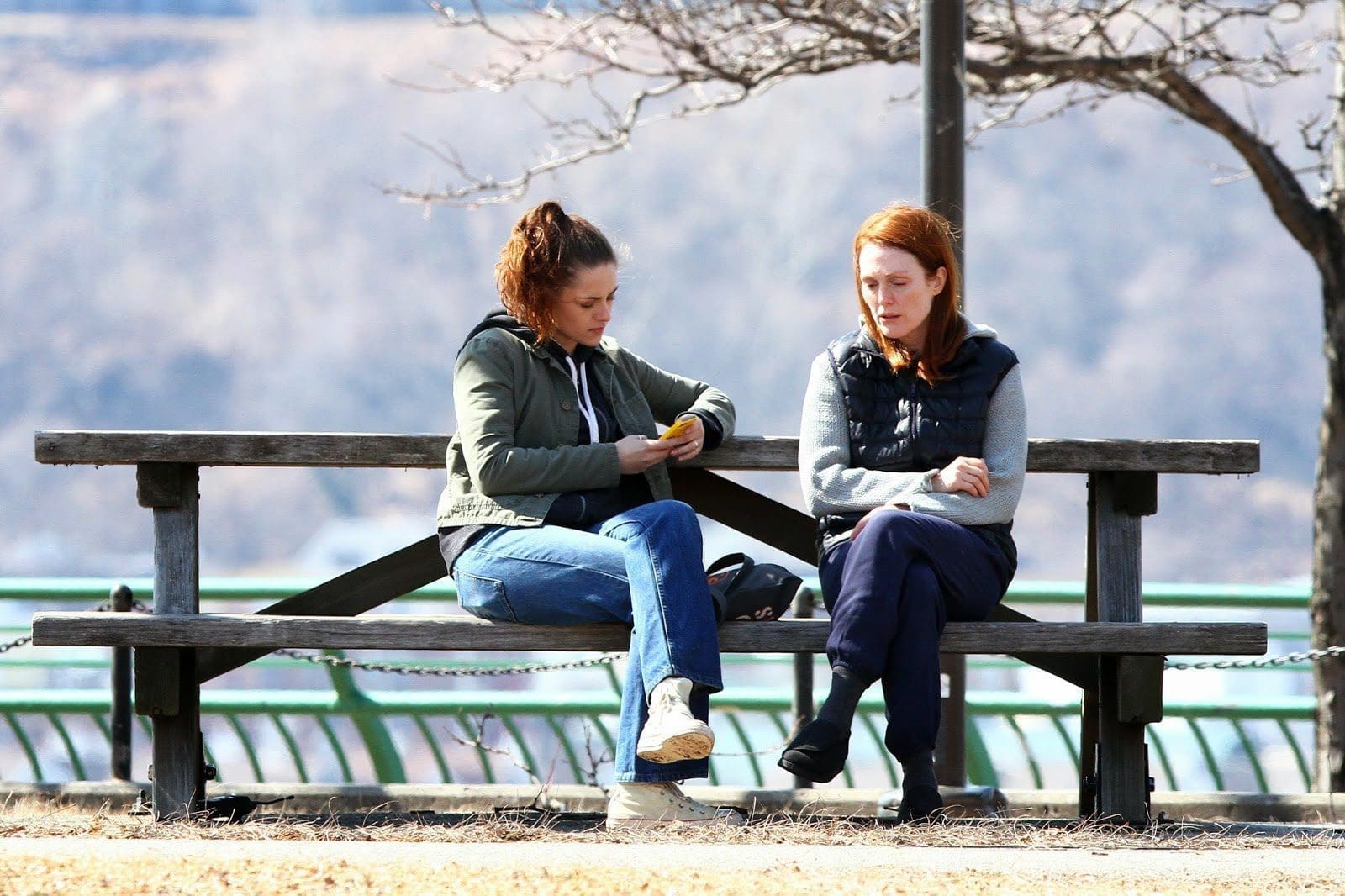← Back to Reviews
in

Julianne Moore finally received the Oscar that has been alluding her for about 20 years with the 2014 drama Still Alice, an unsettling, yet three-dimensional examination of the effects of a disease which are, in many ways, a lot more devastating than the actual end of life and how the lead character attempts to control what is happening to her.

Alice Howland (Moore) is a brilliant, 50-year old linguistics professor at Columbia who is married to a fellow professor (Alec Baldwin) and mother of three grown children who learns that she has developed early onset Alzheimer's disease and once Alice works past the denial of what is happening to her, the film shows this strong woman try to control what is happening to her, use it to her advantage, and eventually lose control of what is happening to her.

Co-writers and co-directors Richard Glatzer and Wash Westmoreland have crafted a compelling and squirm worthy story that reaches beyond the scope of the average disease of the week movie. We watch a believable progression here as Alice first tries self-diagnosis without telling anyone what is going on and after finally opening up to her family, attempts to be her own doctor and tries to fight what's happening to her in her own way and track the progression of the disease herself. It seems that Alice thinks that she is too smart for this disease and that with early diagnosis, she can control it, but the abnormality of what is happening to her is disturbing...there is a wonderfully effective moment in the film where Alice is visiting a facility for Alzheimer's patients and doesn't correct the woman giving her the tour who thinks she is visiting for the sake of a parent.
The film also provides a believable look at the effects of the disease on the victim's family...a husband whose denial pushes him further away while a distant younger daughter finds a relationship with her mother that she never had before.

Moore makes us love and care about Alice and her Oscar win wasn't really a surprise, though I personally think she's done better work, but Baldwin has rarely been better and Kristen Stewart is an eye-opener as Alice's youngest daughter, but this is Moore' show and has rarely commanded the screen the way she does here...a consummate actress providing moments of joy and pathos from one scene to the next.

Julianne Moore finally received the Oscar that has been alluding her for about 20 years with the 2014 drama Still Alice, an unsettling, yet three-dimensional examination of the effects of a disease which are, in many ways, a lot more devastating than the actual end of life and how the lead character attempts to control what is happening to her.

Alice Howland (Moore) is a brilliant, 50-year old linguistics professor at Columbia who is married to a fellow professor (Alec Baldwin) and mother of three grown children who learns that she has developed early onset Alzheimer's disease and once Alice works past the denial of what is happening to her, the film shows this strong woman try to control what is happening to her, use it to her advantage, and eventually lose control of what is happening to her.

Co-writers and co-directors Richard Glatzer and Wash Westmoreland have crafted a compelling and squirm worthy story that reaches beyond the scope of the average disease of the week movie. We watch a believable progression here as Alice first tries self-diagnosis without telling anyone what is going on and after finally opening up to her family, attempts to be her own doctor and tries to fight what's happening to her in her own way and track the progression of the disease herself. It seems that Alice thinks that she is too smart for this disease and that with early diagnosis, she can control it, but the abnormality of what is happening to her is disturbing...there is a wonderfully effective moment in the film where Alice is visiting a facility for Alzheimer's patients and doesn't correct the woman giving her the tour who thinks she is visiting for the sake of a parent.
The film also provides a believable look at the effects of the disease on the victim's family...a husband whose denial pushes him further away while a distant younger daughter finds a relationship with her mother that she never had before.

Moore makes us love and care about Alice and her Oscar win wasn't really a surprise, though I personally think she's done better work, but Baldwin has rarely been better and Kristen Stewart is an eye-opener as Alice's youngest daughter, but this is Moore' show and has rarely commanded the screen the way she does here...a consummate actress providing moments of joy and pathos from one scene to the next.
